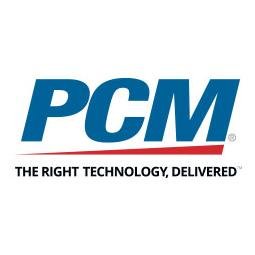 PCM has unveiled its entry into the United Kingdom and Europe through a wholly-owned subsidiary, PCM Technology Solutions UK.
PCM has unveiled its entry into the United Kingdom and Europe through a wholly-owned subsidiary, PCM Technology Solutions UK.
For those who came in late, PCM is a big US technology solutions provider with 2016 revenues of $2.25 billion and nearly 4,000 employees.
Opening in the UK is the next major step in PCM’s global expansion following its successful entry into Canada in 2015. PCM UK will be conducting a Grand Opening celebration on 2 May and expects to begin sales operations during the second quarter.
PCM UK is driving towards considerable scale and expects to employ 90 co-workers by the end of 2017.
PCM CEO Frank Khulusi, Chairman said that the outfit’s expansion into the UK marks a major milestone for PCM.
“PCM UK will be our hub for the UK and the rest of Europe. Many of our North American customers are increasingly global with needs for us to deliver to their European operations cutting-edge IT solutions with the same high level of service they have grown accustomed to from us in North America.”
The outfit said that there are significant potential opportunities for customers based in the UK and across the European Union.
“We believe now is the right timing for us to pursue this additional market, and launched our UK operations accordingly. We spent a great deal of time during the quarter setting up the operation, hiring a managing director and various other leadership roles to ensure the success of this international expansion.”
PCM UK has recently appointed Donavan Hutchinson as its Managing Director. Hutchinson joined the PCM in February to help develop and create the UK operation.
Hutchinson worked for other Global IT solution providers where he was directly responsible for creating and effectively executing collaboration programs to extend service offerings from North America based clients into the UK, Europe and Asia Pacific Markets.
Hutchinson, stated, “I am excited to bring my experience and record of accomplishment of successfully growing global sales of IT solutions to the PCM family. With a mission of delivering a very high level of service to our European clients, we have already built an incredible management team to lead the operation, and I’m confident we will be able to expand the successes of PCM to the UK and across Europe. “
Jay Miley, PCM’s President, added: “Our success in rapidly building the UK operation and preparing it for a grand launch has been one of leveraging our strong relationships with our key vendors and distribution partners who believe in our team and our strategic business plan. I would like to personally thank all of our internal stakeholders, partners, vendors and distributors who are assisting us in executing against our strategy to extend the high level of service and support that our customers currently enjoy today.”
PCM UK is now hiring for positions in sales, vendor management, purchasing, marketing, IT and finance as well as a variety of other business roles.
 Red Hat has been telling the world+dog about its new cloud management platform, CloudForms, and predictive analytics tool, Red Hat Insights.
Red Hat has been telling the world+dog about its new cloud management platform, CloudForms, and predictive analytics tool, Red Hat Insights.


















